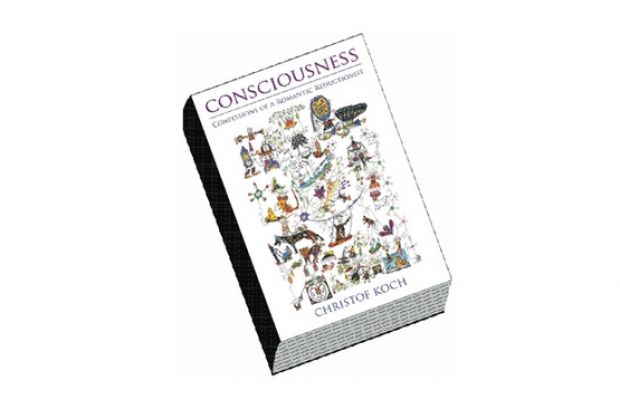When I began to study biology, James Watson and Francis Crick were heroes: they revealed to the world the DNA double helix, a structural explanation of how life goes on. And they became my heroes, too. But what they unravelled was history; for me, consciousness was the contemporary topic.
I did not believe it was possible to study consciousness experimentally until I read an article by Crick and Christof Koch in Nature in 1995. For me and the other neuroscientists-to-be of my generation, it was a scientific revelation. I was in my first year at university and was suddenly confronted with the idea that I could do experiments to understand consciousness. Crick represented the brave old scientist who was not afraid of jumping to a hitherto non-existent field to ask the most exciting questions; but Koch represented the new blood, the kamikaze defying both the scientific community and the philosophers. He was the Che Guevara of cognitive neuroscience who went on to become a highly influential “mainstream” (yet nevertheless original) figure.
At the time, neuroscientists assured us that consciousness was not suitable for scientific experimentation; it was an armchair thought-experiment enterprise for philosophers. But on the other side of town, philosophers were clear: “Real experiments do not address consciousness; experiments can never get to the core of the problem - the ‘hard problem’, how mind becomes matter, is intractable.”
This book is about Koch and his trip through consciousness. A personal account, it is easily the most autobiographical book on consciousness “out in the wild”, and the approach is well chosen for it makes the subject engaging. Koch is bold and clear and blunt. He has always been clear in his ideas, or at least clear in expressing them, and blunt in defending them, abrupt and frank. This book reads like that: like having a talk with Christof in a bar, early on in the evening when there is still no music. Afterwards, doubtless he will make everybody dance.
Confessions is in stark contrast to Koch’s previous book, 2004’s The Quest for Consciousness: A Neurobiological Approach, in which he gave a detailed account of the state of the neuroscience of consciousness, using a thoroughly scholarly approach. Confessions is exactly the opposite: these are confessions from the bottom of his heart - which, we cannot help but note, is in his brain, since the heart is not necessary or sufficient for conscious awareness. If we were to change Koch’s heart for an artificial one he would continue to be Koch, fully conscious or unconscious depending on the time of day and a few additional factors. But in this book, Koch looks beyond heart transplants, asserting that mind transplants should be possible, and that “crystals” of conscious experiences may be uploaded on to computers.
Koch has grown fond of Giulio Tononi’s integrated information theory (IIT) and explains why in the last few chapters of this book. He seems happy with this light version of dualism (property dualism) where to be conscious you have to be an “integrated entity with a large repertoire of highly differentiated states”, as he argued in a 2009 paper for Scientific American. Tononi’s theory also gives Koch a framework for his work in his new role as chief scientific officer at the Allen Institute for Brain Science in Seattle, where he will try to individually map millions of neurons at the same time - an impossible task in people but not in mice, for IIT accommodates consciousness for all, even rodents.
With the exception of chapters 2 and 10, the book offers good rides through the wild forest of the neuroscience of consciousness. Koch is fearless, and does not shrink from talking about phenomenology and qualia; he includes them and tries to formalise consciousness by linking it to direct brain signals or well-defined psychological constructs. I am sure some scholars will complain of a lack of depth in particular topics or areas, or of misrepresentation of their subfields, but for that there are more encyclopedic books, papers and web pages; this is a book of confessions and experiments that the author (and main character) considers interesting and relevant for this (his) story. And it is an enjoyable read.
After a clash between religion and neuroscience in chapter 2, the concluding chapter (10) appears to try to amend the godless explanation of nature and the Universe with a quasi-non-interfering god, one who after setting up the Big Bang feels no need to appear again. This feels like too much of a shock after Koch’s defence of rational explanations and testable hypotheses in the rest of the book. But perhaps it merely underscores his appetite for controversy and serves as the cherry on the cake in this very personal account of consciousness by a romantic reductionist.
Consciousness: Confessions of a Romantic Reductionist
By Christof Koch
MIT Press, 184pp, £17.95
ISBN 9780262017497 Published April 2012
Register to continue
Why register?
- Registration is free and only takes a moment
- Once registered, you can read 3 articles a month
- Sign up for our newsletter
Subscribe
Or subscribe for unlimited access to:
- Unlimited access to news, views, insights & reviews
- Digital editions
- Digital access to THE’s university and college rankings analysis
Already registered or a current subscriber?
